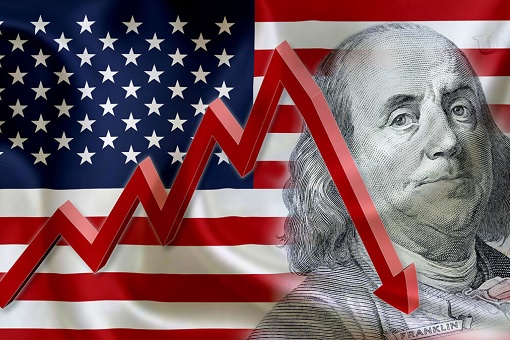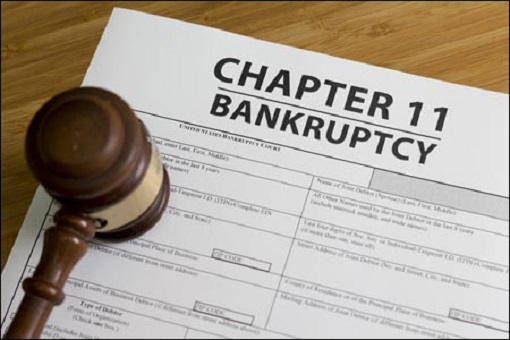In an effort to lower inflation, the Federal Reserve has increased interest rates a whopping 10 times since March 2022. Over the period, inflation hit 9.1% in June 2022 – its highest point since 1982. In the latest inflation report, the inflation appears to have slowed down – recording 5.3% in May 2023, compared to 5.5% in April. This will reduce pressure for more interest rate hikes.
However, excluding volatile food and energy prices, the picture isn’t as optimistic. While food prices rose just 0.2%, it was mostly due to a 3.6% slice in energy prices. A 0.6% increase in shelter prices was a major contributor to the CPI reading. Used vehicle prices increased 4.4% and transportation services were up 0.8%. Crucially, the inflation continues to outpace wage gains for the 26th straight month.
While the Joe Biden administration wants the world to believe that the U.S. will not plunge into recession, a lot of experts have been saying that economic conditions are likely to start deteriorating later in the year. In short, only politicians believe a recession will not happen. Economic experts are ringing the alarm bells over an imminent recession, predicted to start in the second half of 2023.

But even before a recession can be officially announced, there are signs showing the economic problems have already started. For example, the housing bubble is imploding, existing home sales is plunging all over the U.S., foreclosures are surging, manufacturing numbers have fallen into contraction territory and jobless claims are rising.
As the cost of living in the U.S. continues to climb, we saw skyrocketing foreclosures – lender seizes and sells a home or property after borrowers failed to make their mortgage payments. As the housing bubble bursts, sales of existing homes are falling. Annually, sales were down 23% from a year ago. In central Indiana, for example, sales of existing homes have declined for 16 consecutive months.
A recent study found that a jaw-dropping 8 million Americans aged 18 or above were behind rental payments. In fact, 58% of all Americans are now living paycheck to paycheck. Worse, the survey found about 70% Americans said they feel stressed about their finances, mostly due to inflation, economic uncertainty and rising interest rates. People are basically in survival mode.

But the sob story has just begun. Despite being the world’s largest economy, Americans now hold a record amount of credit card debt – nearly US$988 billion. On average, Americans carry around US$5,733 in credit card debt, according to TransUnion’s latest report. The youngest credit card users between the ages of 18 and 29 have around US$2,900 of debt.
TransUnion said – “As inflation rose to near 40-year high levels, many consumers have used credit to help manage their budgets, leading to record- or near-record high balances. More people are carrying more debt, and those balances cost more than ever”. Credit card interest rates have jumped from around 16% to the current 20%, thanks to the Federal Reserve’s numerous interest rate hikes.
Even hotel industry is struggling. In San Francisco, the owner of San Francisco’s largest- and fourth-largest hotels – Park Hotels & Resorts – announced this month that it will stop servicing debt on US$725 million loan, and plans to surrender the 1,921-room Hilton San Francisco Union Square and the 1,024-room Parc 55 San Francisco. The decision was made after experiencing sluggish business travel.

Based on a study by S&P Global Market Intelligence, corporate bankruptcy filings are running at the fastest pace since 2010. In the first five months of the year, 2023 has recorded more filings than any comparable period since 2010. Apparently, higher interest rates and a slowing economy are pushing many companies over the edge.
In yet another sign of a softening economy, jobless claims increase more than expected to their highest since October 2021. Jobless claims totaled 261,000 for the week ended June 3 – an increase of 28,000 from the previous week. A total of 1.635 million people were receiving jobless benefits through May 20, up from 1.283 million from a year ago – an increase of 27.4%.
More importantly, so far this year, American companies have announced plans to cut 417,500 jobs – a 315% increase from the 100,694 cuts announced in the same period last year. With the exception of Education, Government, Industrial Manufacturing, and Utilities, every industry has seen an increase in layoffs this year. The Tech sector alone has cut 168,395 jobs.

While manufacturers around the world are plagued with weakening demand, factories in the United States and European Union reported a decline in new orders for manufactured goods in May. S&P Global data showed that the US manufacturing sector fell into contraction territory in the same month, as did European manufacturing – suggesting an inevitable recession.
Actually, the euro zone entered a recession in the first quarter of this year after the 20-member bloc reported gross domestic product (GDP) of “-0.1%” for the first quarter. In the same breath, Ireland, the Netherlands, Germany and Greece are among the euro economies that reported an economic quarter-on-quarter contraction for the first quarter.
With all the signs written on the wall, it’s not hard to see how a nasty recession is coming whether you like it or not. The current wave of interest-rate hikes has slowed inflation, but also popped several asset bubbles. What you really need to do now is to reserve your cash instead of buying unnecessary liabilities such as a new car, which you want but you don’t really need.

Other Articles That May Interest You …
- Putin Gets The Last Laugh – Germany Enters Recession After Europe Powerhouse Screwed Its Own Economic Engine
- Putin Assassination Attempt – Here’s How Russia’s Revenge Will Trigger Global Economic Destruction
- Ukraine Should Cut Loss While It Can – Learn From U.S. Defeat In 20-Year Afghanistan War That Caused Economic Ruin
- Inflation To Escalate And Recession To Begin – All Hell Will Break Loose After Ukraine’s Defeat In Bakhmut
- Proof British Navy Blew Up Nord Stream – PM Truss Sent Text Message “It’s Done” To Secretary Of State Blinken After Attacks
- Moscow & Beijing Laughing All The Way To The Bank – How China Makes Easy Money Reselling Russian Gas To Europe
- The Worst Is Not Over Yet – Why Inflation & Recession Are Still Alive And The Global Economy Is Still In Bad Shape
- A Shift In Propaganda To Damage Control In Washington – Why President Biden & Western Media Making U-Turn Now
- Economic & Financial Meltdown Is Here – All Signs Lead To Recession, Stagflation, Jobless And A Repeat Of Dot-Com Bust
- U.S. Sanctions Fail – How Russian Currency Emerges Stronger Than Pre-War With A New Gold Standard
- From Wheat To Oil & Gas – How Russia Invasion Of Ukraine Affects Europe’s Food Supply, And Even Your Loaf Of Bread

|
|
June 13th, 2023 by financetwitter
|


|

|

|

|

|

|




























Comments
Add your comment now.
Leave a Reply